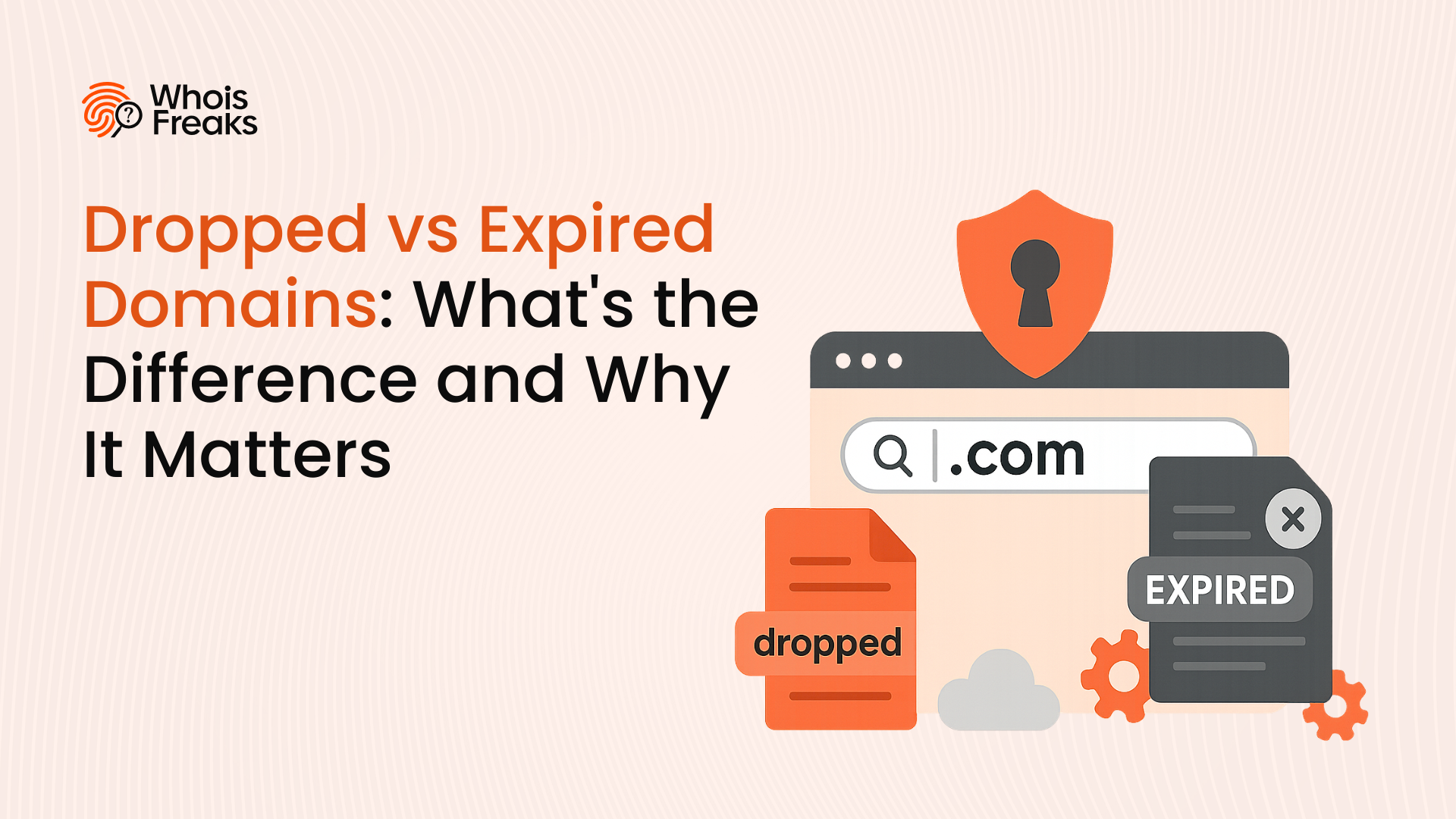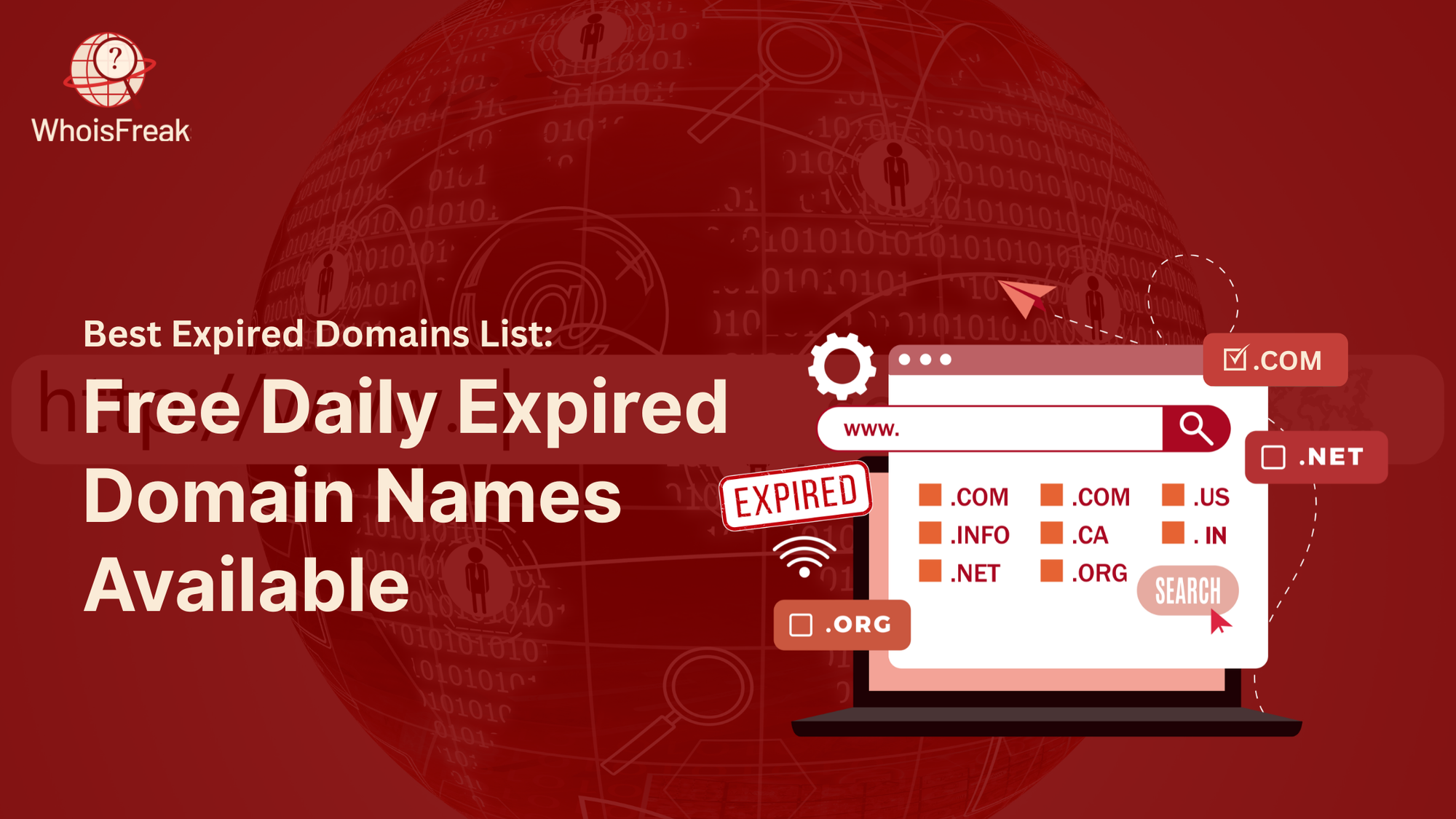

By Nadeem Khan
Posted on January 17, 2025 | 6 min read
Expired domains are more than just digital debris—they're a treasure trove of untapped opportunities for marketers, entrepreneurs, and website owners. In this article, we will explore the concept of expired domains, their potential value, and why you should pay attention to them, even if you're new to the world of online business.
Expired domains are website addresses that were once registered and owned by individuals or businesses but have not been renewed before their expiration date. As a result, they become available for others to purchase. Domain names expire when the owner fails to renew them, often due to oversight, changing priorities, or financial constraints.
When a domain name expires, it enters a grace period during which the original owner can still reclaim it. If it remains unclaimed, the domain is eventually released back into the market and can be purchased through auctions, registrars, or backorder services.
At first glance, an expired domain might seem like an abandoned piece of digital real estate, but it often carries significant value. Here’s why:
Understanding how expired domains move through their lifecycle can help you strategically acquire them. Here are the key stages:
When a domain expires, it doesn’t become available immediately. Most registrars provide a grace period, typically between 30 and 45 days, allowing the original owner to renew the domain.
Once the grace period ends, the domain enters the redemption period, lasting about 30 days. During this stage, the original owner can still reclaim the domain, but it often involves additional fees.
If the domain remains unclaimed, it enters the pending delete phase, which lasts approximately five days. After this, the domain is officially released to the public.
Finally, the domain becomes available for re-registration. In many cases, popular expired domains are listed in auctions or sold through domain brokers, often at a premium price.
The process of finding valuable expired domains involves some research and the right tools. Here are some effective strategies:
Websites like GoDaddy Auctions, NameJet, and Flippa specialize in listing expired domains for sale. These platforms allow you to bid on high-value domains before they hit the general market.
Backorder services like SnapNames or DropCatch enable you to claim a domain as soon as it becomes available. This is ideal for highly competitive domains.
To keep track of expired domains effectively, consider using tools like the Expiring & Dropped Domains feature on our platform, which provides real-time updates on domains in pending deletion or redemption status.
Before purchasing a domain, check its SEO metrics such as domain authority, page authority, backlink profile, and organic traffic. Tools like Ahrefs, Moz, and SEMrush can help you make an informed decision.
Acquiring expired domains can significantly enhance your website's SEO strategy. Here’s how:
High-quality expired domains often come with a history of valuable backlinks from reputable websites. By leveraging these backlinks, you can boost your domain authority and improve your site’s visibility in search engines.
With an expired domain that already has a strong online presence, you can bypass the typical sandbox period for new websites, achieving faster search engine rankings.
Using a 301 redirect, you can transfer the authority and traffic from an expired domain to your main website. This tactic works especially well for related niches.
Once you’ve acquired an expired domain, there are several ways to make the most of it:
Create a brand-new website on the expired domain, leveraging its existing SEO authority and traffic. This is especially effective for launching niche blogs, affiliate sites, or eCommerce platforms.
Redirecting an expired domain to your primary site can transfer its SEO value and any residual traffic. Ensure the domains are closely related to avoid confusing visitors or search engines.
Domain flipping involves buying expired domains at a low cost and selling them at a higher price. If the domain has high demand, this can be a lucrative business model.
Some marketers use expired domains to build private blog networks for SEO purposes. However, this strategy should be used cautiously to avoid violating search engine guidelines.
While expired domains offer many opportunities, there are some risks to consider:
Always perform a thorough background check on any expired domain before purchasing it.
Expired domains hold incredible potential for anyone looking to grow their online presence or invest in digital assets. Whether you’re an entrepreneur seeking a shortcut to SEO success or a domain flipper hunting for your next opportunity, expired domains can be a game-changer.
Tools like Ahrefs, SEMrush, Moz, and Majestic can help you evaluate metrics like backlinks, traffic, and domain authority.
Yes, expired domains with strong backlink profiles and high authority can enhance your SEO strategy significantly.
The price varies depending on the domain’s quality, demand, and metrics. Some domains cost a few dollars, while others can sell for thousands.
Absolutely! Expired domains can benefit beginners by providing a head start in building authority and traffic.
Yes, they’re excellent for launching affiliate sites, especially if they already have traffic related to your niche.
Expired domains are still in the lifecycle stages where they can be reclaimed or auctioned, while deleted domains have been fully released to the public for re-registration.
Expired domains are far from obsolete; they’re opportunities waiting to be unlocked. By understanding their value and potential, you can leverage them to build a powerful online presence, boost your SEO efforts, or generate additional income through domain flipping. Platforms like WhoisFreaks can help you efficiently track and acquire expired domains, offering tools to explore their history, metrics, and potential. Whether you're a seasoned pro or a beginner, expired domains could be the key to your next digital breakthrough.

Discover the key differences between dropped and expired domains and learn why it matters for your online strategy. Read more to optimize your choices.
14 min read

Discover the best free daily expired domain names to boost your online presence. Explore our curated list and find your perfect domain today!
8 min read